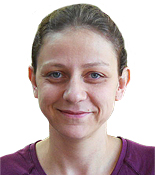
Orsolya Barabas
University of Geneva
Switzerland
EMBO Workshop
This conference will take place at EMBL Heidelberg, with the option to attend virtually. Proof of COVID-19 vaccination or recovery is required for on-site attendance. Please see EMBL’s COVID-19 safety policy for on-site events.
For late registrations to attend the workshop onsite, please contact Raili Pall.
This conference series has become known for exploring yeasts as models to study questions of general relevance to evolution and ecology. Experts will speak on a range of topics, including evolution theory, ecology, genetics, cell biology, genomics, systems biology, metabolic modelling and engineering.
The focus of this conference will be on comparative and experimental strategies to explore evolutionary questions, from field studies to computer simulations to comparative genomics. Central evolutionary questions will be discussed, using yeast and a range of other species whose biology is well understood and to determine the degree to which that biology is conserved in more distantly related species.
The aim is to move from correlative studies based on comparative work to more causal studies based on broad experimental support. This problem is particularly pressing in the age of cheap and easy sequencing.
“An incredibly interesting and well-organised event, not only from the scientific side but also on the technical part. As expected from other editions of the meeting, the science was amazing and very variegated. Kudos for the organisation and for the unusually high number of young speakers.“ – Irene Stefanini, University of Turin, Italy
“One of my favourite meetings with a real community feeling. I’ve started collaborations and made great friends here.” – Rike Stelkens, Population Genetics, Stockholm University, Sweden
“A great conference and academic environment – networking opportunities are limitless.” – Jose Antonio Urban Aragon, International Laboratory for Human Genome Research, National Autonomous University of Mexico (LIIGH-UNAM), Mexico

University of Geneva
Switzerland
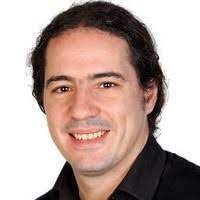
ETH Zurich
Switzerland
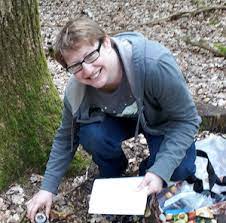
Wheaton College Massachusetts
USA
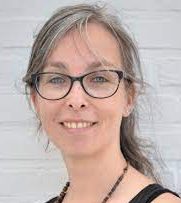
University of Groningen
The Netherlands

University of Washington
USA

Unversity of Oxford
UK
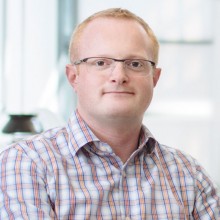
Stanford University School of Medicine
USA
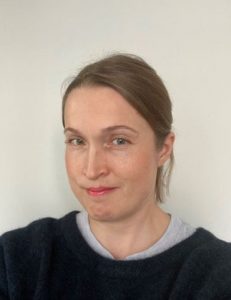
Aalto University
Finland

University of Oxford
UK

University of Geneva
Switzerland
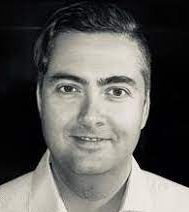
DTU Bioengineering
Denmark
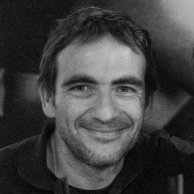
Institute for Research on Cancer and Ageing of Nice (IRCAN)
France
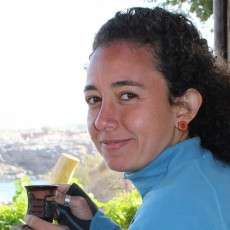
University of Lausanne
Switzerland
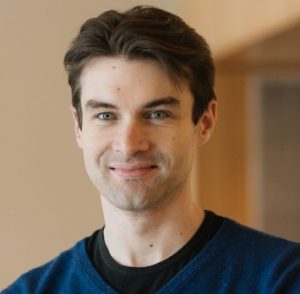
Dartmouth College
USA

Hungarian Academy of Sciences
Hungary
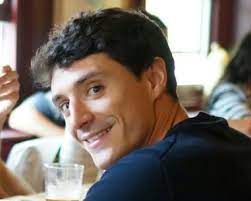
Centro Nacional de Biotecnología (CSIC)
Spain
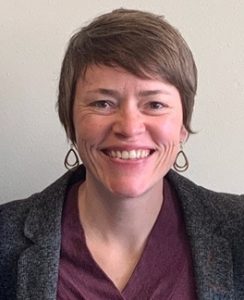
University of Minnesota Medical School
USA

Academia Sinica
Taiwan

University of Geneva
Switzerland

Institute for Research on Cancer and Ageing of Nice (IRCAN)
France

University of Lausanne
Switzerland
Got something to say? Tweet it! #EMBOEvoEco
| Time (Europe/Berlin) | Speaker |
|---|---|
| 15:00 – 17:00 | Arrival and registration with light refreshments |
| 17:00 – 19:00 | Session 1: Experimental Evolution Chair: Gianni Liti – Institute for Research on Cancer and Ageing of Nice (IRCAN), France |
| 17:00 – 17:15 | Opening remarks |
| 17:15 – 17:45 | Moving yeast experimental evolution research out of the lab and into the classroom Maitreya Dunham – University of Washington, USA |
| 17:45 – 18:15 | Genomic diversity across Candida auris clinical isolates shapes rapid development of antifungal resistance in vitro and in vivo Anna Selmecki – University of Minnesota Medical School, USA |
| 18:15 – 18:35 | Phage- and Robotics-Assisted Near-Continuous Evolution Emma Chory – Massachusetts Institute of Technology, USA |
| 18:35 – 18:55 | Bacterial evolved resistance against chemotherapies impairs drug efficacy in the worm host Amir Mitchell – University of Massachusetts Medical School, USA |
| 19:00 – 20:30 | Dinner |
| 20:30 – 21:30 | Social event: Science Pub Quiz |
| Time (Europe/Berlin) | Speaker |
|---|---|
| 09:00 – 10:20 | Session 1 (cont.): Experimental evolution Chair: Gianni Liti – Institute for Research on Cancer and Ageing of Nice (IRCAN), France |
| 09:00 – 09:30 | Genes involved in protein folding and chromatin buffer genetic variation Kevin Verstrepen – VIB-KU Leuven Center for Microbiology, Belgium |
| 09:30 – 10:00 | Experimental evolution of Bacillus biofilms Ákos T. Kovács – DTU Bioengineering, Denmark |
| 10:00 – 10:20 | Exploring the limits of thermal tolerance in an Antarctic bacterium Macarena Toll-Riera – ETH Zürich, Switzerland |
| 10:20 – 10:50 | Coffee Break |
| 10:50 – 19:00 | Session 2: Genomic insights in Ecology & Evolution Chair: Antonis Rokas – Vanderbilt University, USA |
| 10:50 – 11:20 | Ecological genomics of pre-domesticated Saccharomyces cerevisiae lineages Isheng Jason Tsai – Academia Sinica, Taiwan |
| 11:20 – 11:50 | Unravelling the secrets of a model yeast in its home environment Primrose Boynton – Wheaton College Massachusetts, USA |
| 11:50 – 12:10 | A cohesive panel of 142 telomere-to-telomere genome assemblies unfolds the structural genetic diversity at the species-scale in Saccharomyces cerevisiae Gilles Fischer – CNRS, Institut de Biologie Paris-Seine, Sorbonne Université, France |
| 12:10 – 12:30 | The natural diversity of the yeast proteome reveals chromosome-wide dosage compensation in aneuploids Julia Muenzner – Charité Universitätsmedizin Berlin, Germany |
| 12:30 – 14:00 | Lunch |
| 14:00 – 14:40 | Poster Introduction (odd numbers) |
| 14:40 – 16:00 | Poster Session 1 (odd numbers) |
| 16:00 – 17:00 | Meet the Editors: Maria Polychronidou – Molecular Systems Biology, Germany Roland Roberts – Public Library of Science, UK Martina Rembold – EMBO Reports, Germany Not available on demand |
| 17:00 -19:00 | Session 2 (cont.) – Genomic insights in Ecology & Evolution Chair: Antonis Rokas – Vanderbilt University, USA |
| 17:00 – 17:30 | Within-patient evolution of plasmid-mediated antimicrobial resistance Alvaro San Millan – Centro Nacional de Biotecnología (CSIC), Spain |
| 17:30 – 18:00 | How genes jump: DNA asymmetry drives transposition of antibiotic resistance in bacteria Orsolya Barabas – University of Geneva, Switzerland |
| 18:00 – 18:20 | Evolutionary origins of orphan genes in prokaryotes of the human gut Nikolaos Vakirlis – BSRC “Alexander Fleming”, Greece Not available on demand |
| 18:20 – 18:40 | Assessing the contribution of gut-to-lung translocation to bacterial colonization and the dynamics of antibiotic resistance evolution in an ICU patient Rachel Wheatley – University of Oxford, United Kingdom Remote speaker |
| 18:40 – 19:00 | Mechanism of extensive genomic reshuffling and creation of diversity in the parasexual life cycle of a filamentous fungus Michael Knop – University of Heidelberg (ZMBH), Germany |
| 19:00 – 20:30 | Dinner |
| 20:30 – 23:00 | After Dinner Drinks |
| Time (Europe/Berlin) | Speaker |
|---|---|
| 09:00 – 11:10 | Session 3: Systems and synthetic biology Chair: Maitreya Dunham – University of Washington, USA |
| 09:00 – 09:30 | Genomic introgressions: origin, evolution and function Gianni Liti – Institute for Research on Cancer and Ageing (IRCAN), France |
| 09:30 – 10:00 | Mechanisms of action of natural genetic variants Dan Jarosz – Stanford University School of Medicine, USA |
| 10:00 – 10:20 | Cell-cell metabolite exchange creates a pro-survival metabolic environment that extends lifespan Clara Correia-Melo – Charité – Medical University Berlin & Francis Crick Institute London, Germany, UK |
| 10:20 – 10:50 | Coffee break |
| 10:50 – 11:10 | Reversion dynamics of copy number variants: fitness costs versus benefits in the absence of selection pressure Titir De – New York University, USA |
| 11:10 – 12:20 | Session 4: Assembly and Evolution of Communities Chair: Orsolya Barabas – University of Geneva, Switzerland |
| 11:10 – 11:30 | Pathogenesis of polymicrobial biofilm-associated infections Kimberly Kline – University of Geneva, Switzerland |
| 11:30 – 11:45 | An efficient collective – From individual proteome efficiency to collective community metabolism Matthias Hülsmann – ETH Zurich & Eawag, Switzerland |
| 11:45 – 12:00 | Influence of the adaptive immune system on the evolution of gut microbiota Camille Ameline – Instituto Gulbenkian de Ciência, Portugal |
| 12:00 – 12:20 | Communities modulate clonal fitness in small populations of triple negative breast cancer cells Benjamin Hershey – IFOM the FIRC Institute of Molecular Oncology, Italy |
| 12:20 – 14:00 | Lunch |
| 14:00 – 14:40 | Poster Introduction (even numbers) |
| 14:40 – 16:00 | Poster Session 2 (even numbers) |
| 16:00 | Free evening |
| Time (Europe/Berlin) | Speaker |
|---|---|
| 09:00 – 12:20 | Session 4 (cont.): Assembly and Evolution of Communities Chair: Orsolya Barabas – University of Geneva, Switzerland |
| 09:00 – 09:30 | Competition and warfare in bacteria Kevin Foster – University of Oxford, UK Not available on demand |
| 09:30 – 09:50 | Mapping phage-mediated gene flow in polymicrobial communities using laboratory evolution Yuval Mulla – University of Cologne, Germany |
| 09:50 – 10:10 | Understanding the effect of drugs on microbiome dynamics using ecological models Naomi van den Berg – MRC Toxicology Unit, University of Cambridge, United Kingdom |
| 10:10 – 10:40 | Coffee break |
| 10:40 – 11:10 | Spatial ecology of predator-prey dynamics in bacterial biofilms Carey Nadell – Dartmouth College, USA |
| 11:10 – 11:40 | Ecological interactions drive the evolution of antibiotic resistance Marjon de Vos – University of Groningen, The Netherlands Not available on demand |
| 11:40 – 12:00 | Even allocation of benefits stabilizes microbial community engaged in metabolic division of labor Miaoxiao Wang – ETH Zurich, Switzerland |
| 12:00 – 12:20 | Gene loss promotes the emergence of metabolic cross-feeding interactions in soil bacterial communities Ghada Yousif – Osnabrück University, Germany |
| 12:20 – 14:00 | Lunch |
| 12:20 – 18:50 | Session 5: Understanding & Predicting Evolution Chair: Kiran Patil – University of Cambridge, UK |
| 14:00 – 14:30 | Gene loss and compensatory evolution promotes the emergence of morphological novelties Balazs Papp – Hungarian Academy of Sciences, Hungary |
| 14:30 – 15:00 | Predictive evolution of metabolic phenotypes using model-designed selection environments Paula Jouhten – Aalto University, Finland |
| 15:00 – 15:20 | Distribution of fitness effects of cross-species transformation reveals potential for fast adaptive evolution Mona Förster – University of Cologne, Germany |
| 15:20 – 15:50 | Coffee Break |
| 15:50 – 16:20 | Pathogen virulence evolution driven by host-associated microbes Kayla King – University of Oxford, UK Remote speaker |
| 16:20 – 16:50 | Mechanisms behind the context-dependency of interspecies bacterial interactions Sara Mitri – University of Lausanne, Switzerland |
| 16:50 – 17:10 | Understanding the origin of lager yeast Francisco Cubillos – University of Santiago, Chile |
| 17:10 – 17:40 | Coffee Break |
| 17:40 – 18:10 | Studying evolution through the lens of structural biology empowered by artificial intelligence Pedro Beltrao – ETH Zurich, Switzerland |
| 18:10 – 18:30 | Metabolic efficiency reshapes the seminal relationship between pathogen growth rate and virulence Richard Lindsay – University of Exeter, United Kingdom |
| 18:30 – 18:50 | Exploitation of an ancient dimerization interface enables allosteric regulation in cyanobacterial photoprotection Niklas Steube – Max Planck Institute for Terrestrial Microbiology, Germany |
| 18:50 – 19:00 | Closing remarks |
| 19:00 – 21:00 | Dinner |
| 21:00 – 00:00 | Party with Live Music from Woodland |
On-site registration fees include admission, conference materials, COVID-19 safety measures, meals and coffee breaks. Participants are expected to book and pay their own accommodation and travel expenses.
Virtual registration fees include access to all of the talks (livestreamed and on demand) and facility to submit questions.
| On-site Academia | €550 |
| On-site PhD Student | €450 |
| On-site Industry | €850 |
| Virtual Academia | €175 |
| Virtual PhD Student | €125 |
| Virtual Industry | €225 |
NO visa support letters will be issued until payment of the registration fee is confirmed.
Accredited journalists may be eligible to register for complimentary press registration. Registrants may be required to provide accreditation or equivalent proof of press membership after registration. Please contact Inna Bösselmann for more information. Please note that we do not offer complimentary registrations for editors of scientific journals.
Registration will be on a first-come first-served basis. Your place can only be confirmed after payment of the registration fee. If you are added to our waiting list, please consider taking advantage of our offerings to participate virtually.
On-site participants: Types of payments accepted are international bank transfers and credit card payments.
Virtual participants: We are only able to accept card payments. In exceptional cases we can accept bank transfers. Please contact events@embl.de for details.
Only registered participants attending the on-site event are eligible to submit an abstract. Abstracts will not be accepted from virtual participants.
After you have logged in and successfully registered, you will receive an email asking you to submit your abstract. Click on the link provided and enter your abstract in the text box provided. Alternatively you can submit your abstract by clicking on the link on the confirmation page directly after registering. The same login credentials are used for both processes.
Please note:
Title: The title should not exceed 20 words. Only the first word of the title should start with a capital letter and the rest of the title should be in lowercase.
Authors and affiliations: Please fill in the author’s details as requested in the online form. The compulsory details are: First Name, Last Name, Organisation Name (Affiliation or Company), Country and Email. Mark only one author as the role of First author and please don’t forget to indicate who will be presenting. The order of the authors will be listed as follows: First Author, Co-First Author (alphabetically if multiple), co-author(s) (in the order added by the submitter).
Presentation types: When submitting your abstract, you can apply for an oral or poster presentation. A selection process will take place with the results announced 2-3 weeks after the abstract submission deadline.
Please check our FAQs pages for further information on how to submit an abstract.
Limited financial assistance is provided by the EMBL Advanced Training Centre Corporate Partnership Programme and EMBO in the form of both registration fee waivers and travel grants. Availability is limited to participants attending on-site events in Heidelberg and will be indicated during the abstract or motivation letter submission process.
Your place in the meeting is only confirmed by paying the registration fee, which is mandatory even when receiving a fee waiver.
The fee waiver will cover the registration sum that you have paid to attend the course or conference.
The travel grant will cover the cost of travel (airfare, train, bus, taxi, accommodation, visa, and/or registration fees*) and is provided up to specified caps which are normally as follows:
– up to €400 for participants travelling to an EMBL Course, EMBL Conference or EMBO|EMBL Symposium from within Europe.
– up to €1000 for participants travelling to an EMBL Course, EMBL Conference or EMBO|EMBL Symposium from outside Europe.
– up to €500 for any participant travelling to an EMBO Practical Course or EMBO Workshop.
– up to €1000 for any participant working in Chile, India, Singapore or Taiwan travelling to an EMBO Practical Course or EMBO Workshop.
*Registration fees are only covered for EMBO Practical Courses or EMBO Workshops
The organisers may reduce the grant cap to accommodate more participants. Recipients will be notified of their travel cap amount when they are informed of the outcome of their application. Original receipts must be provided with your signature for all costs incurred within two months of completion of travel. Scanned copies cannot be accepted.
For EMBO Practical Course or EMBO Workshop participants with children, there is the possibility to apply for a childcare grant to offset child care costs incurred by participants or speakers when participating at a course or conference. Eligible costs include fees for a baby-sitter or child-care facility, travel costs for a care giver, or travel costs for taking the child to the meeting etc. Please note that priority will be given to early stage researchers. A maximum amount of 500 EUR can be awarded per participant applying for an EMBO Childcare Grant. In order to apply for this grant for EMBO Workshops, you must be registered by the abstract submission deadline.
You may apply for financial assistance when submitting your motivation letter for courses, and abstract for conferences. In your application you will be asked to answer questions regarding why your lab cannot fund your attendance and how your attendance will make a difference to your career. Application for financial support will not affect the outcome of your registration application.
For the Boehringer Ingelheim Fonds Travel Grant, there is a pre-application question during the motivation letter submission process, and if selected you will be requested to complete a standard form and documentation consisting of your travel expense estimation.
The scientific organisers will select the recipients of all financial assistance during the motivation letter or abstract selection process. Results will be announced approximately 6-8 weeks before the event start date, however for some events this may be delayed. Selection results do not impact your admission to the meeting. Selection is based on your current work or study location, the reasons for needing financial support and the impact this event will have on your career.
Costs will be reimbursed after the meeting only once a reimbursement form and original receipts (from travel costs) have been received.
View our list of external funding opportunities and information on attending a conference as an event reporter.
For further information about financial assistance please refer to the FAQ page.
Accommodation is not included in the conference registration fee.
As further changes in our events are possible due to COVID-19, you should book flights, trains and hotels with flexible options and favourable cancellation conditions.
The hotels below have rooms on hold for participants until 4 September 2022, in some cases at special rates. Please quote the booking code EAE22-01 and confirm the exact price of the room with the hotel directly.
Conference shuttle buses are free of charge for participants, and depart from designated bus stops near the hotels to EMBL and back, mornings and evenings.
Download the bus schedule here.
The bus stops for this conference are:
View Conference shuttle bus stops and hotels in a larger map. Please note that not every bus stop will be used for every event.
Address: EMBL, Meyerhofstraße 1, 69117 Heidelberg, Germany. For further information on getting to EMBL Heidelberg visit Public Transportation to the Venue. For information about accommodation and local transportation please refer to the FAQ page.
All meals and coffee breaks are included in the registration fee. Our catering staff will prepare a wide variety of vegetarian meals, meat and fish dishes, soups, pasta, fresh fruit and vegetables, as well as a variety of desserts.
Please wear your badge at all times when serving yourself.
No food or drinks are allowed in the auditorium.
There are lockers available next to the stairs leading down into the Auditorium. You will find some of those equipped with sockets to charge your smartphone/tablet etc.
In most places the electricity is 220 volts AC (50 cycles). An adaptor and a plug that fits the German socket may be needed for your appliances/laptop (i.e. American, Japanese, etc.). A USB charging station for electronic devices is available at the registration desk.
EMBL Merchandise is available on Mon – Thu (9 am – 12 pm). If you are interested in purchasing an EMBL souvenir (products presented in the glass display in the registration area), please ask at the registration desk for more information.
Please read EMBL’s COVID-19 safety policy for on-site events.
Do not smoke in any EMBL building.
Eating and drinking is prohibited in the Auditorium and all laboratories.
Do not enter any restricted areas or the laboratories unless instructed to do so.
If first aid is required …
In case of fire …
Beyond first aid…
Please remember to bring your own medication, if needed, to the conference. Note that the next pharmacy is a 4-minute drive from the EMBL, but for many medications you will be required to see a doctor to get a prescription.
Ensure in advance that your medical insurance will cover you during your visit in the event that you do need to see a doctor while in Heidelberg. In any case, the EMBL Course and Conference Office will assist you to get to the pharmacy and a doctor of your choice if necessary.
Wi-Fi is available everywhere on the premises (no password required), just log on to ATC-Guest. The eduroam network (secure, world-wide roaming access service developed for the international research and education community) is also available.
‘’Lost and Found’’ are kept at the registration desk until the end of the conference.
There are lockers available on-site to store your luggage, which require a 2 EURO coin to operate. There is another luggage room on level E0, which is free to use but remains unlocked during the conference.
There is a nursing room available in the ATC Rooftop Lounge on level A29.
During the conference an EMBL Photographer may be taking photographs. If you would not like to appear in these, please inform the photographer or a member of the Course and Conference Office.
We can help printing your boarding passes/train ticket. Please send it to events@embl.de and collect your print-outs at the registration desk.
There is a room for prayer, mediation and yoga located on level E0 behind the Auditorium. Please be respectful of other participants using the room.
A variety of activities in Heidelberg can be found on the website of Heidelberg Marketing.
During the event we provide conference shuttle buses to and from EMBL. In addition, there is the public bus 39A that serves the EMBL campus and taxis can be easily booked at any time. Information on the conference shuttle buses can be found on the individual event website and more detailed information on travelling to EMBL can be found on our Travel Information page.
| English | German |
|---|---|
| Hello | Hallo |
| Goodbye | Auf Wiedersehen |
| Good morning | Guten Morgen |
| Good afternoon | Guten Tag |
| Good evening | Guten Abend |
| Good night | Gute Nacht |
| I’m sorry | Tut mir leid |
| Excuse me… | Entschuldigen Sie |
| How are you? | Wie geht’s? |
| I’m fine thanks. And you? | Mir geht es gut , danke, und dir/Ihnen? |
| What is your name | Wie heisst du? Wie heissen Sie? |
| My name is | Ich heisse |
| Do you speak English | Sprechen Sie Englisch? |
| I don’t understand | Ich verstehe nicht |
| Please speak more slowly | Können Sie bitte langsamer sprechen |
| Thank you | Danke schön |
| Where is the toilet? | Wo ist die Toilette? |
| Please call me a taxi | Bitte rufen Sie mir ein Taxi |
| How do I get to….? | Wie komme ich zum/zur…..? |
| A beer/two beers, please | Ein Bier/zwei Bier bitte |
| A glass of red/white wine please | Ein Glas Rot/Weisswein bitte |
| The menu, please | Die Speisekarte, bitte |
| Is there a local speciality? | Gibt es eine Spezialität aus dieser Gegend? |
| I’m Vegetarian | Ich bin Vegetarier |
| It was delicious | Es war hervorragend |
| The bill, please | Die Rechnung, bitte |
| I have a headache | Ich habe Kopfschmerzen |
| I have a sore throat | Ich habe Halsschmerzen |
| My stomach hurts | Ich habe Magenschmerzen |
| I’m allergic to | Ich bin allergisch gegen |
| I need a doctor who speaks English | Gibt es einen Arzt, der Englisch spricht? |
Abstracts will not be accepted from virtual participants. Only registered participants attending the on-site event are eligible to submit an abstract.
Please note that only on-site participants are able to submit abstracts and participate in the poster sessions.
We are using an event platform for this conference. More information about the platform will be shared ahead of the conference.
Additional information can be found in our Code of Conduct.
It is important to stay healthy and move around, especially when you are attending an event virtually. We have put together a few coffee break stretches and yoga videos in the conference platform for you to enjoy during the event.
Please use the Q&A function in the event platform.
If you have any other questions, you can go to the Help Desk in the event platform. Click on ‘more’ on the top menu and click Help Desk.
The programme is planned based on the Europe/Berlin time zone, unless otherwise stated. Please take your time zone into consideration when planning your attendance.
Please find additional information including FAQs, terms and conditions, COVID-19 safety policy and travelling to EMBL on our Information for Participants page.
COVID-19 information for on-site events at EMBL Heidelberg can be found in our COVID-19 FAQs.
Media partners
EMBO Journal, an EMBO Press journal
International Union of Biochemistry and Molecular Biology
Open Biology, a Royal Society journal
Sponsorship opportunities
We offer a variety of event sponsoring possibilities, with the flexibility to select a set sponsorship package or combine individual sponsorship options to suit your event budget. Discounts are available for companies sponsoring multiple events at EMBL Heidelberg. View other conferences, or contact sponsorship@embl.de for further information.
If you are interested in becoming a media partner of this event, please visit our media partnerships webpage.

Date: 5 - 8 Oct 2022
Location: EMBL Heidelberg and Virtual
Deadline(s):
Abstract submission: Closed
Registration (On-site): Closed
Registration (Virtual): Closed
Organisers:
Contact: Inna Boesselmann